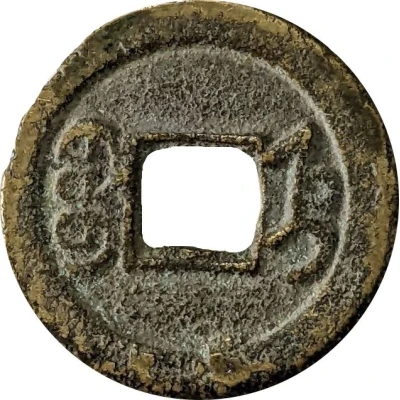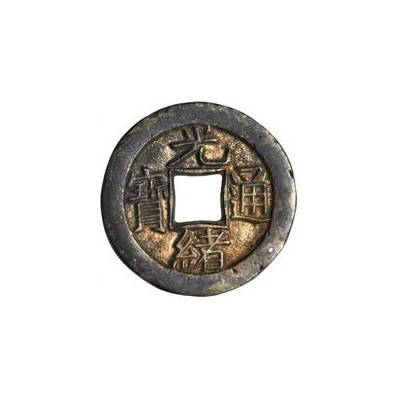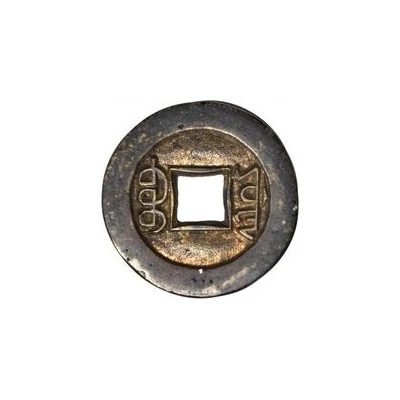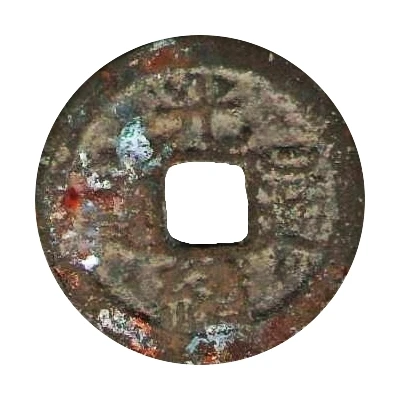


© Quentin Christensen
1 Cash - Guangxu Tongbao; Boo-jyi ND
| Brass | 3.23 g | - |
| Issuer | Empire of China |
|---|---|
| Emperor | Qing dynasty › Guangxu (光緒帝) (1875-1908) |
| Type | Standard circulation coin |
| Years | 1887-1899 |
| Value | 1 Cash |
| Currency | Cash (621-1912) |
| Composition | Brass |
| Weight | 3.23 g |
| Shape | Round with a square hole |
| Technique | Cast |
| Orientation | Medal alignment ↑↑ |
| Demonetized | Yes |
| Updated | 2024-10-04 |
| Numista | N#187015 |
|---|---|
| Rarity index | 91% |
Reverse
Two Manchu words (read vertically) separated by the hole.
Script: Mongolian / Manchu
Lettering: ᠪᠣᠣ ᡷᡳ
Translation: Boo-jyi
Edge
Plain
Comment
DocTongHeadInteresting fact
One interesting fact about the Standard circulation coin 1 Cash - Guangxu (Tongbao; Boo-jyi) ND (1887-1899) from Empire of China made of Brass weighing 3.23 g is that it was designed by a French engraver named Jean-Antoine Raux, who was commissioned by the Chinese government to create a new coinage system for the country. The design features a dragon on one side and the Chinese characters "通寶" (Tongbao) on the other, which translates to "circulating treasure." This coin was used during the Guangxu period (1875-1908) and was an important part of China's currency system at the time.



